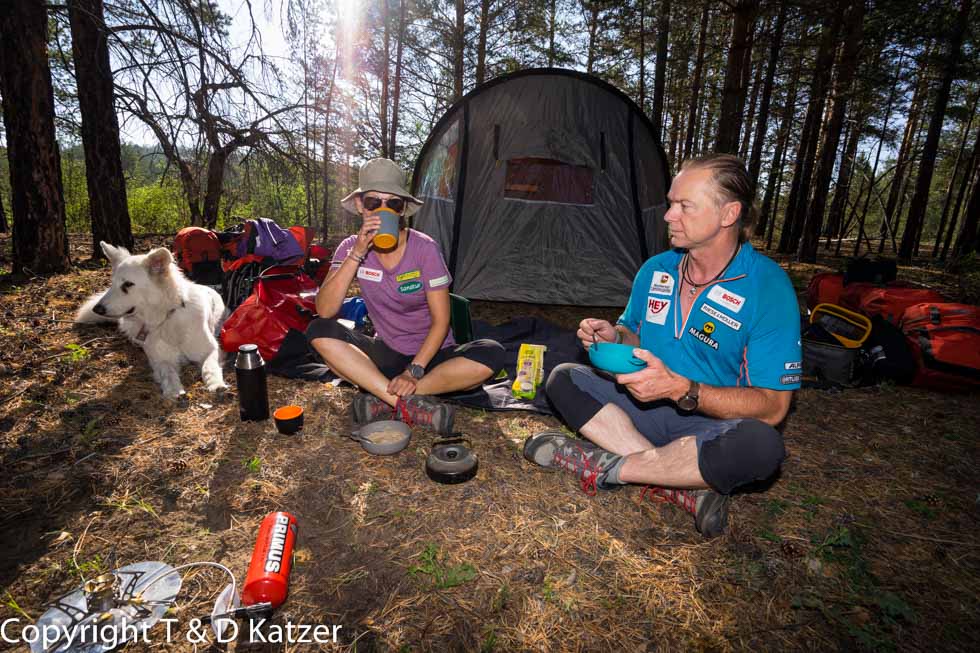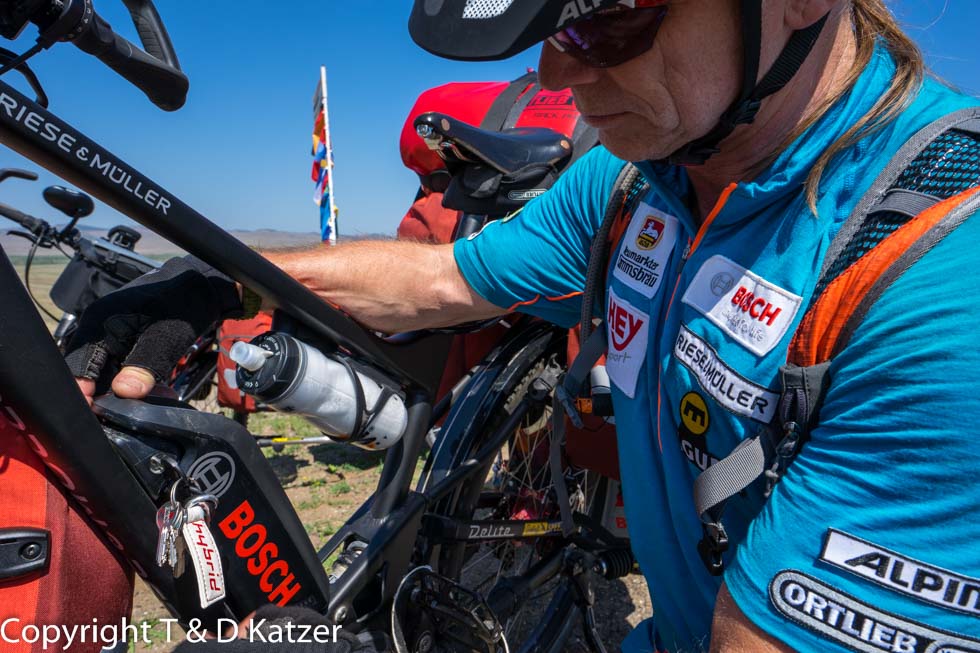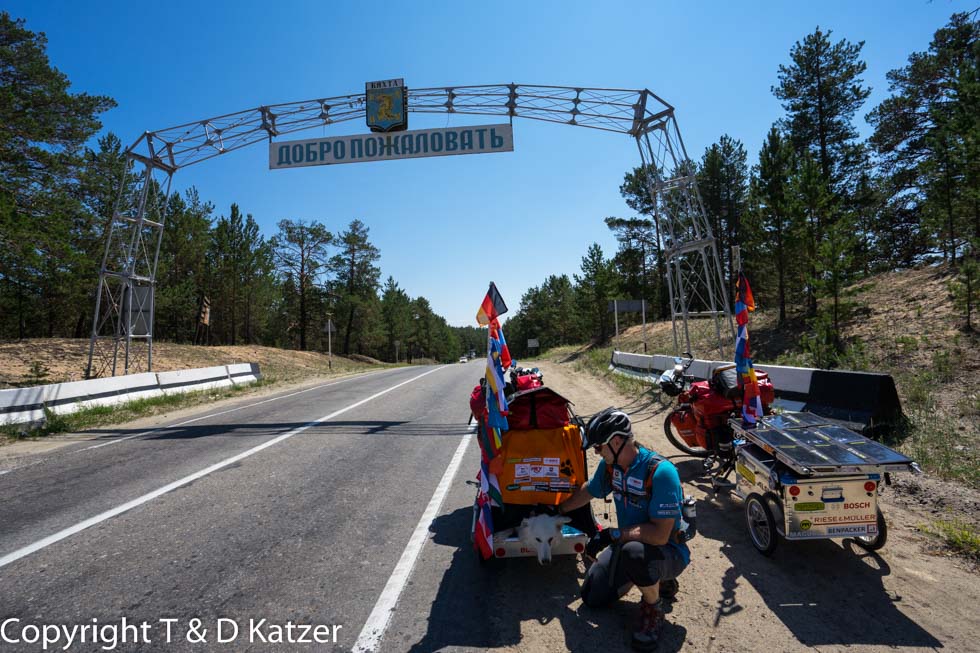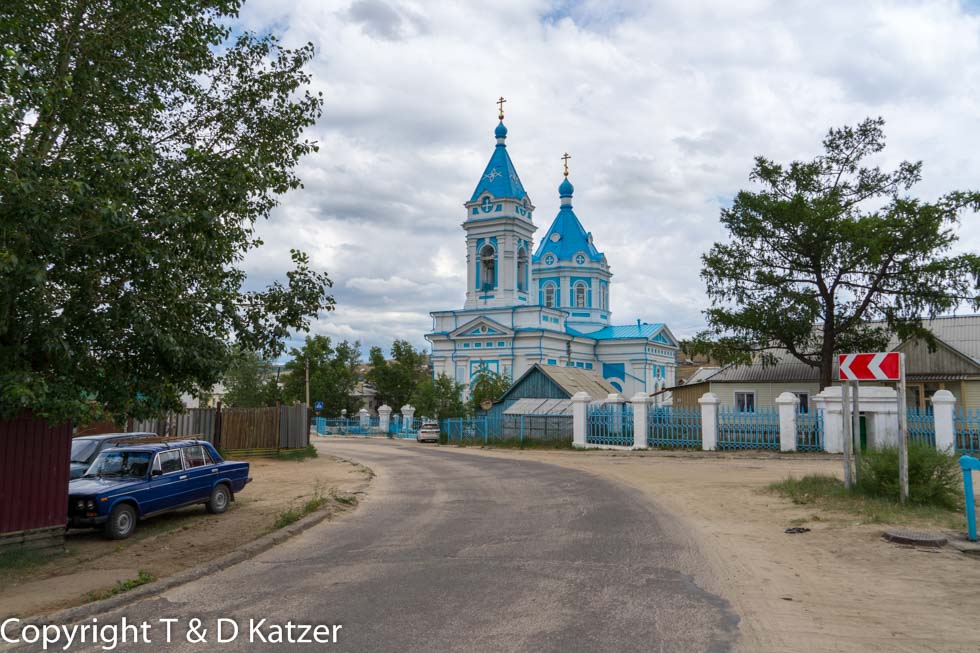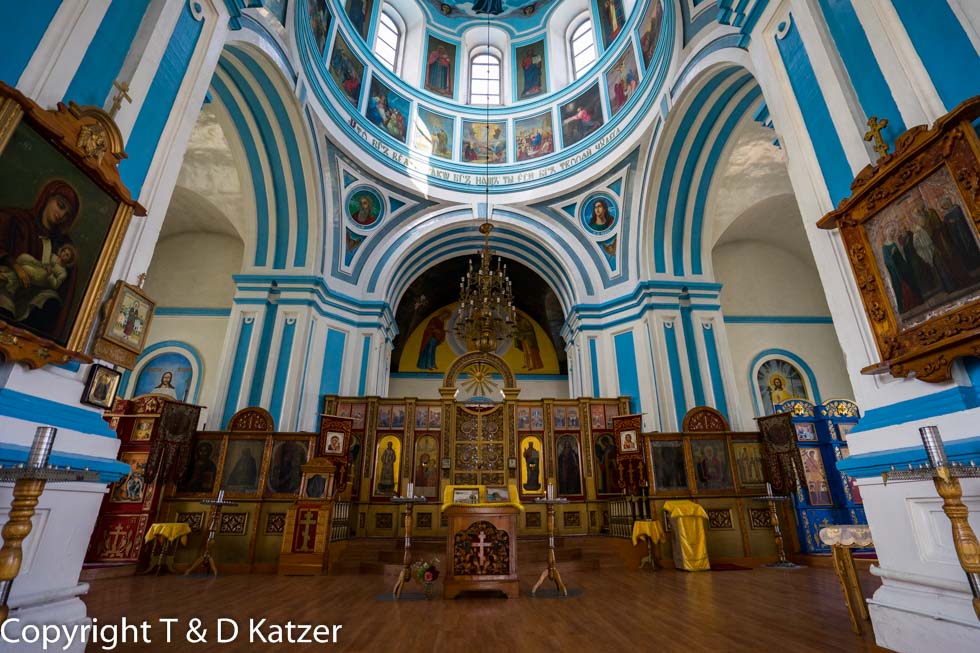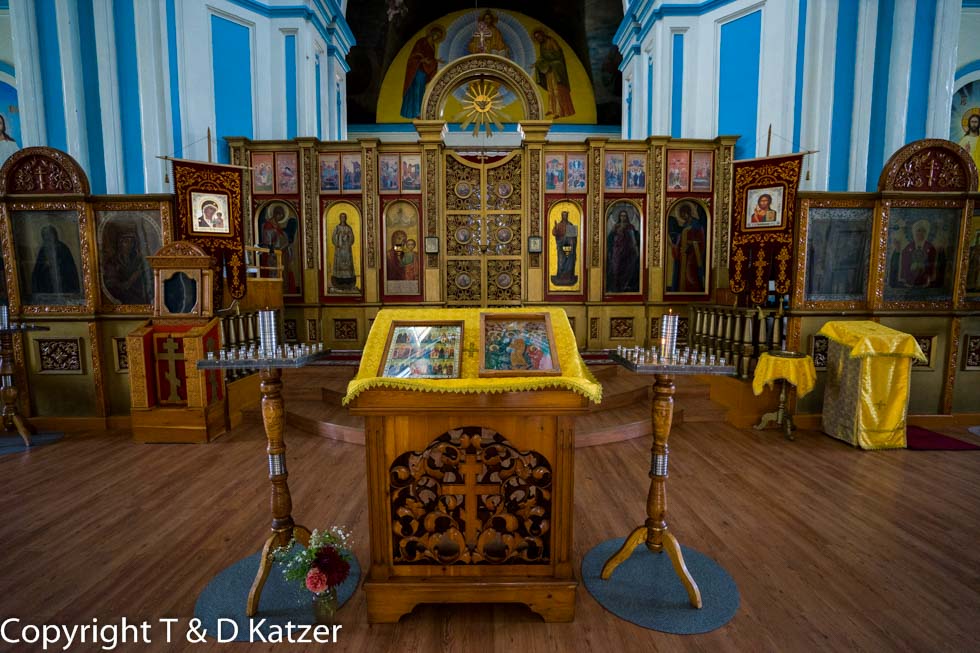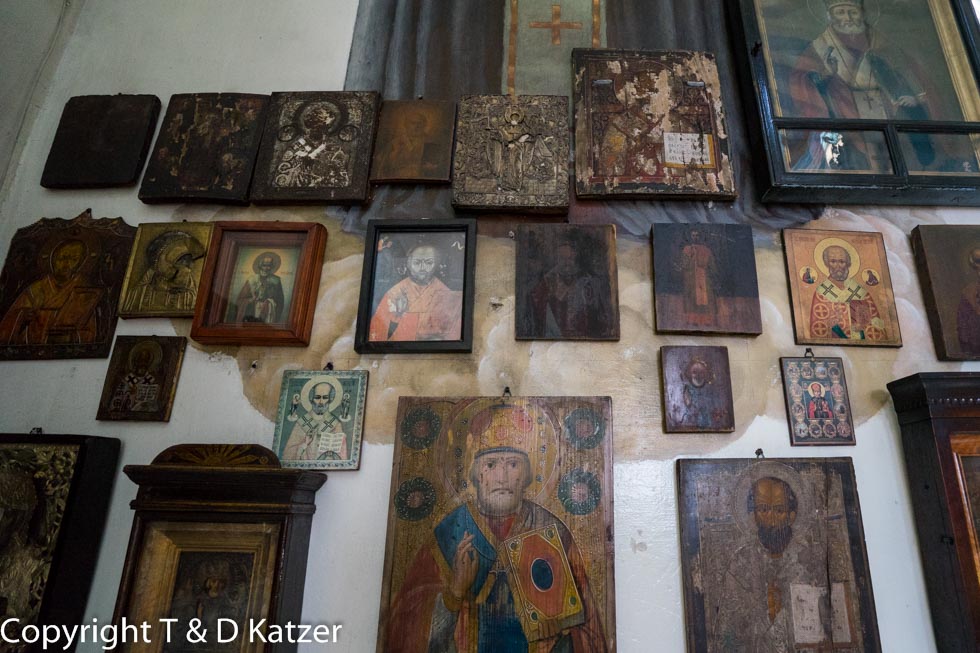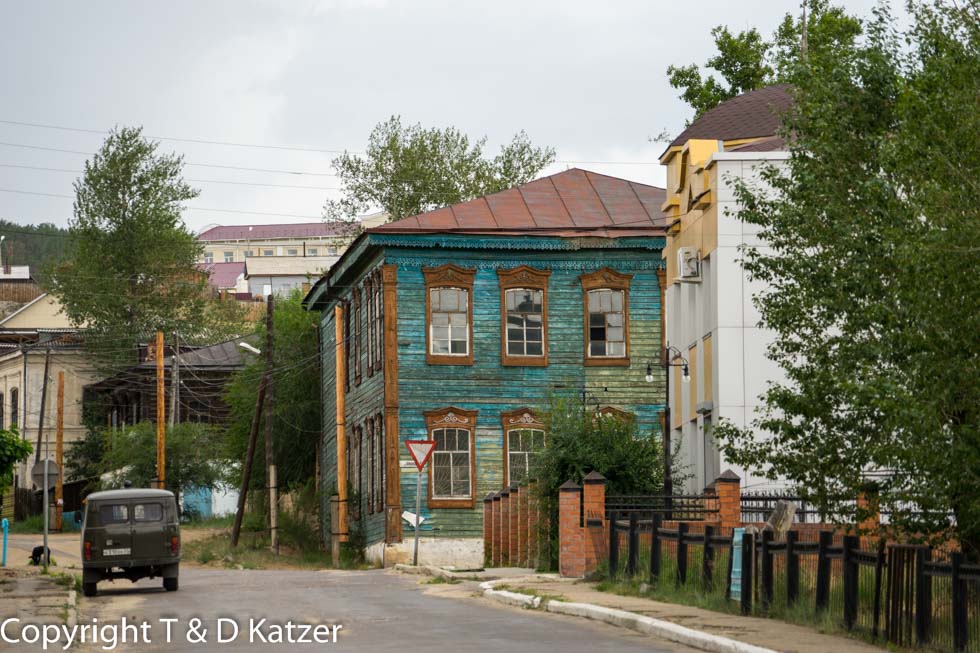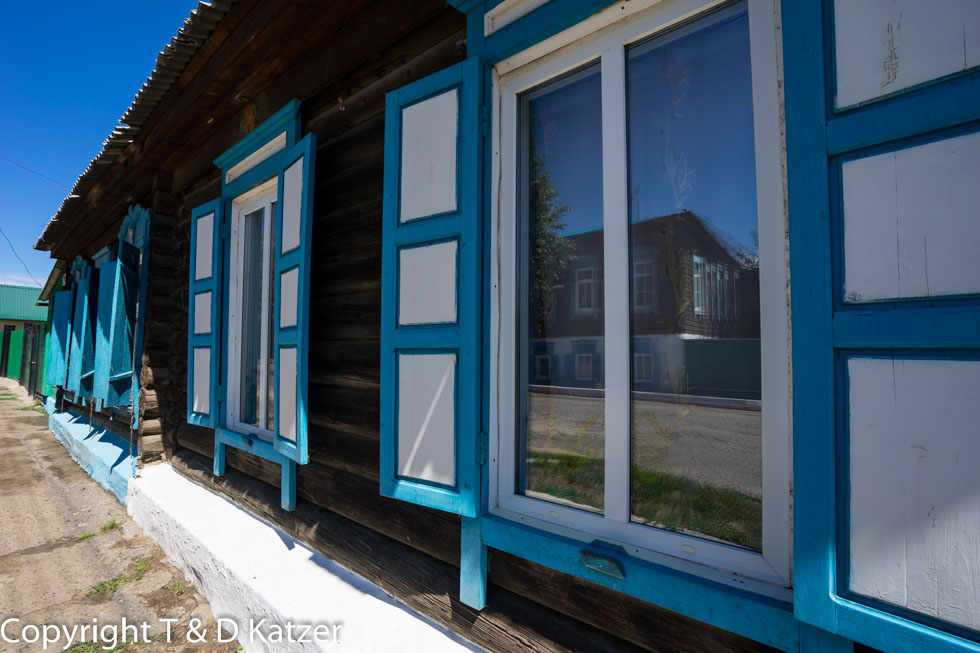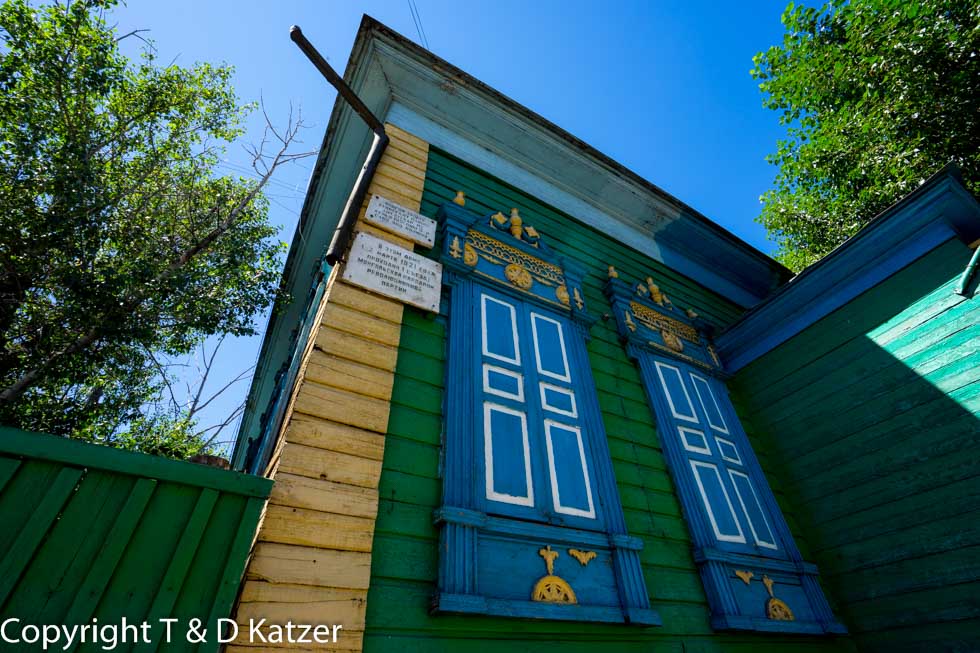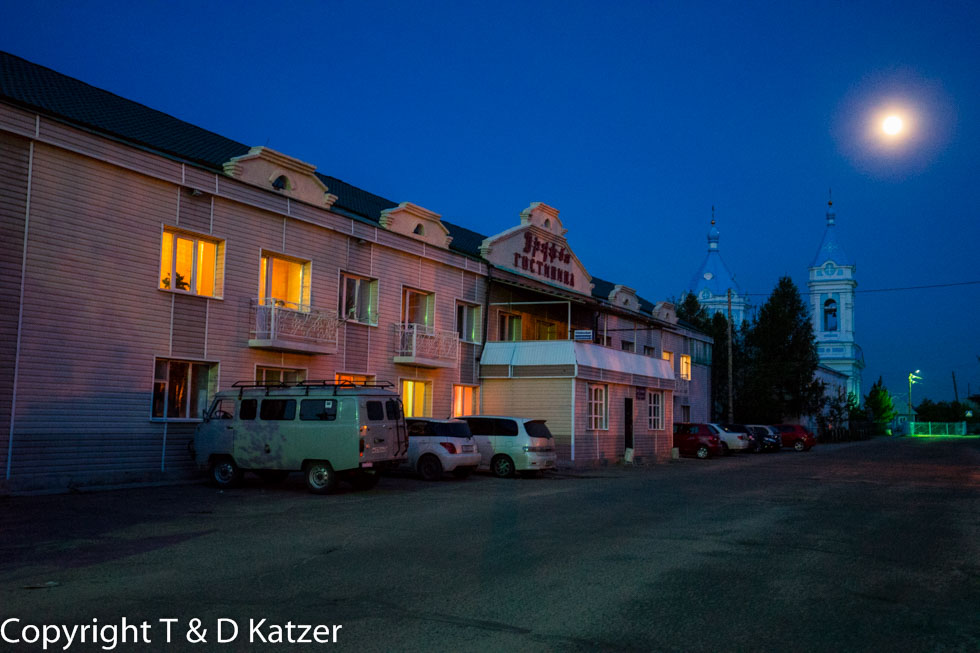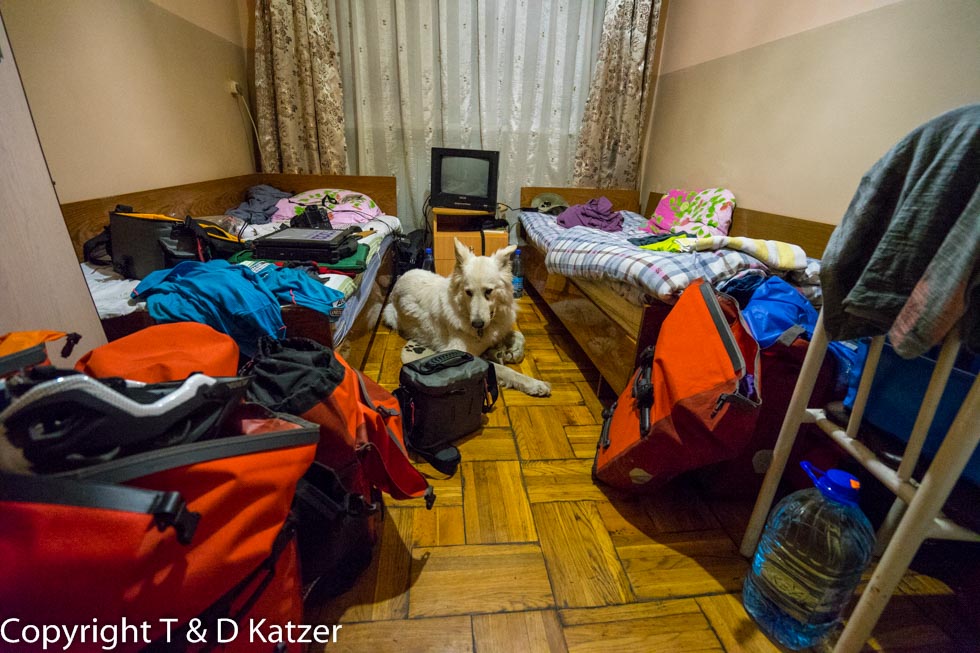
Unpleasant encounter
N 50°20'48.9'' E 106°27'03.3''
Day: 28-31
Country:
Russia / Siberia
Location:
Kjachta
Latitude N:
50°20’48.9”
Longitude E:
106°27’03.3”
Kilometers per day:
38
Total kilometers:
8.292
Aver. Sib.
19.7 km/h
Soil condition:
Poor asphalt
Maximum height:
900 meters
Sunrise:
05:12 a.m.
Sunset:
8:49 pm
Travel time:
1:54 hrs.
Temperature day max:
39°
Departure:
12:00 p.m.
Arrival time:
16:00
(Photos of the diary entry can be found at the end of the text).
It is still dark when I wake up for the first time and listen to the dawn. The thermometer has dropped to 11 degrees. We lie in our summer sleeping bags and enjoy the pleasant coolness after the hot nights in the Gastinizas. As dusk begins to fall, the taiga comes alive with the chirping of birds. A light breeze blows over the ground and carries the scent of fresh resin. The steel-blue sky heralds another hot day. We enjoy the peace and quiet of the forest, stretch out on our camping mats and lie down for a long time. The hotter call of a bird of prey makes Ajaci look up into the treetops. He curiously observes every movement that is new to him.
After getting up, we boil water for tea and have breakfast without any time pressure. We don’t leave our peaceful camp until 12:00 noon and push our heavy bikes through the forest to the road. In the meantime, the thermometer has risen to almost 40 degrees in the shade. During our last crossing of Siberia, we didn’t have enough water with us on this needle-less route and were afraid of dying of thirst on the road. Only one of the few passing cars had stopped at the time. “The only thing the driver said was: “Why don’t they have water in this area?” and drove on. This time we have enough of the delicious liquid and, above all, enough power in our batteries to easily make it to Kjachta. Shortly before the border town, we are checked by a military post. The officers are friendly. “Can we take a picture with them?” I ask. “Njet” (no) is the definite answer. “Da ßwidanja i charoscho putascheswiee” (“Goodbye and have a good journey”, the soldiers wish us and push Tanja’s bike with a laugh. A few kilometers later, the town sign of Kjachta, which was founded in 1772 on the basis of a treaty between the Russian Empire and the Chinese Empire, spans the road like an archway. From here it’s all downhill. To the left and right of the road are barracks where there is a lot of activity. Broad-shouldered, muscular soldiers with short hair stand at a bus stop and wave to us open-heartedly. Next to the church we find a guesthouse with old but, as always, clean little rooms without toilets or showers. Our bikes are given a safe place to stay for the night in a well-locked storage room. We carry the equipment into the overheated room and stretch our legs.
As well as recording our experiences and archiving the pictures, we enjoy our stay in a city that was the starting point for many expeditions by Russian explorers to Central Asia. Every lunchtime we visit a local restaurant that serves classic Russian cuisine. On the way there, we walk past old wooden houses typical of Siberia, marked by the ravages of time and reminiscent of the years when all trade between Russia and China was conducted via Kyakhta. While the Russians’ main export was fur products, the main export from China was tea, which reached Europe from here. One reason why this important trade route was also called the Tea Route. But China also exported silk, cotton, linen fabrics, leather, works of art and much more.
As so often, I’m sitting in my old camp chair when Tanja comes in the door. “Now something very strange happened to me. I was walking along the sidewalk with Ajaci when all of a sudden an old Russian car came rushing up with two guys in sunglasses sitting in it. They stopped abruptly right next to me. It was like something out of an agent movie. In the corner of my eye, I could still see the doors open. Following a flash of inspiration, I escaped with Ajaci through a hole that opened up in the wooden fence next to me and ended up in a large courtyard. Fortunately, there was a narrow path on the other side that led directly to the opposite side of our guestiniza. When I turned around, the men sped around the block with their engines roaring. But I didn’t see them again on this stretch of road.” “Hm, that sounds really strange. But who would kidnap you on the street in broad daylight?” “Maybe they wanted to take Ajaci away from me? They’re all so keen on our dog here. But it could just be my imagination. Maybe the men just wanted to wish me a good day. But I’m telling you, there was something fishy going on,” says Tanja thoughtfully. “It doesn’t matter whether you were imagining things or not. I know that you have developed an exceptionally good sense for critical situations over the years of traveling. Darting into the fence hole was certainly better than waiting and asking. You did a damn good job.”
On the evening before our departure, I feel a little wistful, as I did on our last trip to Russia. I think of the many experiences and adventures we have already had in this country. A country that has a different surprise in store for travelers every moment. A country with fascinating cultures, between wealth and poverty, where the climatic conditions are blissful, where there are indescribably beautiful natural landscapes to admire, where we were once surprised by highwaymen but also enjoyed great hospitality. This time our stay in Russia and Siberia was short-lived. We would love to come back. There is still so much to discover here that one human life would hardly be enough. But this time our route takes us to another, equally exciting and interesting country, which we last rode through on horseback for 15 months to spend an extreme winter with the last reindeer nomads. “I’m looking forward to Mongolia,” says Tanja as we lie on our old beds in the evening.
The live coverage is supported by the companiesGesat GmbH: www.gesat.com and roda computer GmbH www.roda-computer.com The satellite telephone Explorer 300 from Gesat and the rugged notebook Pegasus RP9 from Roda are the pillars of the transmission.
